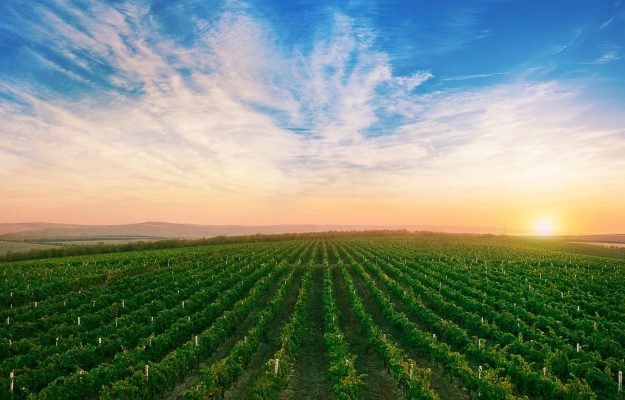“This global crisis has hit big wine markets like Europe and the United States, and emerging markets like Brazil, hard. It is estimated that it will not be possible to recover turnover levels before 2024/2025. We need to take lessons from the Southern Hemisphere which, in this crisis, has been able to better support the wine sector by enhancing it. Moreover, the approach of the bubbles sector, which, following the crisis of 2008, has had a great revival, teaches. We will have to reformulate our offer”. Between the wine market and the economic, social and environmental challenges of the future, said Pau Roca, dg Oiv International Wine and Vineyard Organization at the World Forum - virtual - of Wine Cooperatives on the global situation and the effects of the pandemic, promoted by Caviro and chaired by the president of the Group Carlo Dalmonte, with the main protagonists of the international cooperative wine world, from Italy to Australia, from Argentina to Brazil, from Uruguay to Chile, from France to Spain and Portugal. In particular, according to Roca, it is necessary to maintain the integrity of the product, aim for the highest quality and dialogue with the consumer, so that confidence in wine as a natural, agricultural and high-quality product remains high, capable of overturning prejudices and proving useful to health and the environment. “Vineyards do not only produce wine,” he says, “53% of world grape production is used for wine-making and 47% for food. The world crisis will also affect in terms of food and the vineyard will be able to offer itself as a universal global product, a source of healthy and caloric foods such as fruit, juices, the must, or raisins that can be used to help fight hunger in the world. A speech on this issue has been launched with the Secretary-General FAO in the United Nations Assembly to promote research and development programs”.
“The pandemic has changed many habits and has a profound impact also on the business in which we operate - said Dalmonte - consequently, there are at least three dimensions to think about: the contingent effects, the permanent effects and the improvement actions that we can put in place”. And among the immediate effects, the common denominator on all the territories is the blockage of the Horeca channel, now slowly recovering, in the face of the growth of purchases in supermarkets or with delivery and e-commerce, which has led not so much to a decline as a change in the consumption of wine, linked to domestic and meal use, rather than leisure or convivial moments. A worrying factor is a general decline in sales rather than volumes, a situation that is having an impact on the premium segments, pushing consumption towards lower-priced products. But there is a general concern about the economic crisis on the horizon: “more social inequalities will appear and globalization will reduce its reach - added Dalmonte - is a scenario in which the cooperative world can say and do a lot because it is rooted in the territories and bearer of a fairer and more sustainable model of development, capable of translating difficulties into opportunities. For example, it could be the right time to aim for better quality and remove the exogenous sugar from the product everywhere so that only the fruit of the vine plant is in the bottle”.
“The wine sector is in great difficulty - added Luca Rigotti, wine sector coordinator Alleanza Cooperative Italiane - and is not the only one. The change in consumption habits to the detriment of the Horeca sector suggests a drop between 20-25% of turnover (quantifiable in 2 billion euros). We have asked politicians, both national and European, to consider our proposals and to show more dynamism in promotional measures towards third countries. We are working at the European level to obtain timely and homogeneous measures. We are forced to work with a view to distillation, which, although not a primary destination of the product, allows us to dispose of excess quantities. For the future, we will have to equip ourselves to think broadly, supporting together an agricultural economy which is fundamental at a global level but which, unfortunately, at the moment, like many other economic sectors, has to face new difficulties”.
Asia will be the most important reference market for the future, on the occasion of the Universal Exposition 2025, on stage in Osaka, the wine cooperatives of the world must be present with a dedicated pavilion, to spread the culture and consumption of wine also in that vast area of the world.
In the meantime, the points on which to move are “a general situation stable at volumes but which sees a loss in value; new areas of control and management of unexpected market fluctuations and turbulence and the issue of sugar; the relationship between wine and health, now controversial, starting a constructive dialogue with the world of medicine; sustainable policies at 360°, environmental, social and economic”, concluded Dalmonte reiterating “the importance of the cooperative configuration of Cantine Sociali, in the wine industry and beyond, as a winning model in terms of modernity and sustainability, supporting the global push for a social, economic and environmental renaissance”.
Copyright © 2000/2026
Contatti: info@winenews.it
Seguici anche su Twitter: @WineNewsIt
Seguici anche su Facebook: @winenewsit
Questo articolo è tratto dall'archivio di WineNews - Tutti i diritti riservati - Copyright © 2000/2026







































































































































































































